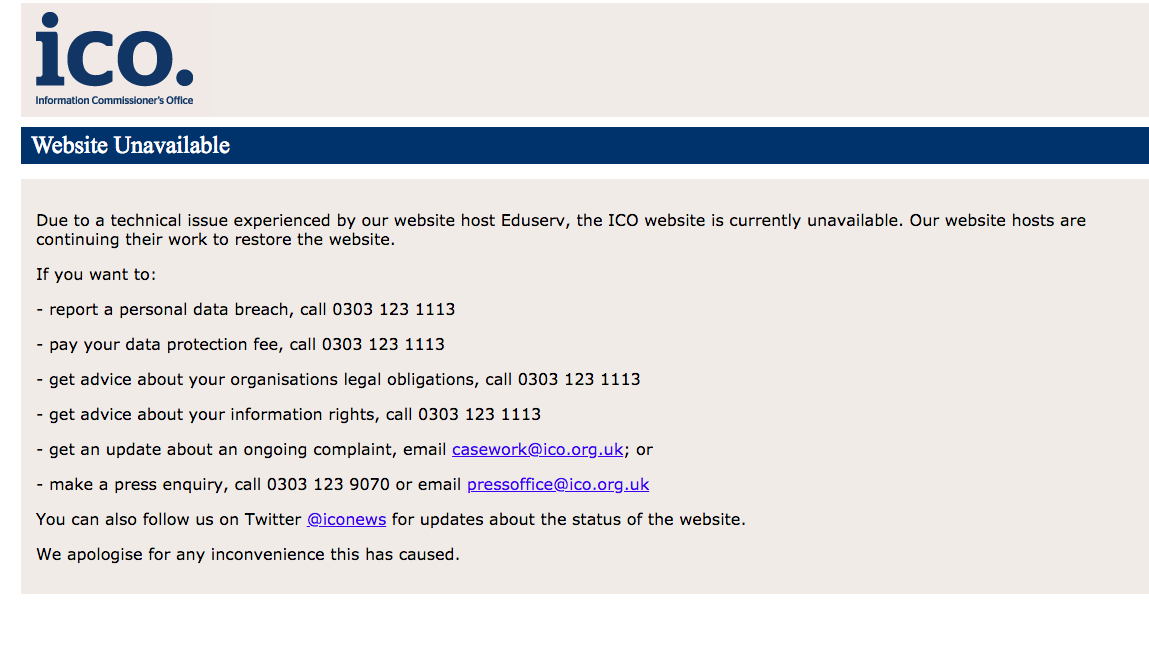Lessons to learn from a year of data breaches
In the year since the HMRC data breach, many more have been made public – here’s a roundup of 11 lessons (we should have) learned.


MI5 uses the tech as well which is handy, as it lost a portable computer through an open window in October.
And while the General Teaching Council failed to pay attention to the moral of the HMRC story don't put important things in the post its lost disc was helpfully encrypted, meaning the 11,423 affected teachers could sleep a little easier.
The majority of the other cases in the past year haven't involved encrypted media but why not? The tech is cheap and relatively easy to roll out. The point could become moot in the next few years, as the next version of Microsoft's Windows operating system is expected to have encryption built-in though does anyone want to wait that long or depend on Microsoft to keep us safe? Didn't think so.
Lesson Six: People are the weak linkNo matter what tech you use, or what policies you put in place, it all comes down to people and their skills do they know about data security and are they even capable of keeping things safe?
Indeed, speaking at a Gartner security summit, Martin Smith, chairman of the Security Awareness Special Interest Group (SASIG), said that no matter how shiny and cool and secure a firm's tech was, "the people screwed you in the end."
With that in mind, the government has announced all civil servants handing private data are to get security training a good first step, but it needs to be expanded. Is there any arm of the government which doesn't handle people's private data?
Lesson Seven: Hold less informationOne of the problems with the HMRC case was how much information was on the discs. After the breach, reports revealed that less information was actually requested by the intended recipient the National Audit Office but the tax body didn't have the time or money to strip fields out of the data base, so more information was sent than necessary.
Sign up today and you will receive a free copy of our Future Focus 2025 report - the leading guidance on AI, cybersecurity and other IT challenges as per 700+ senior executives
And as the government looks to collect more and more data on its citizens, for projects like the national identity card scheme, this problem will only grow. This point was hammered home in a report from none other than the Home Affairs Committee, which said the government should keep watch on "function creep" and adopt a principle of what it called "data minimisation", collecting only essential information.
"What we are calling for is an overall principle of 'least data, for least time'," said committee chairman Keith Vaz at the time. "We have all seen over the past year extraordinary examples of how badly things can go wrong when data is mishandled, with potentially disastrous consequences."
The ICO has also repeatedly called for less information to be held, but the government doesn't seem to hear its own watchdog barking
Freelance journalist Nicole Kobie first started writing for ITPro in 2007, with bylines in New Scientist, Wired, PC Pro and many more.
Nicole the author of a book about the history of technology, The Long History of the Future.
-
 Trump's AI executive order could leave US in a 'regulatory vacuum'
Trump's AI executive order could leave US in a 'regulatory vacuum'News Citing a "patchwork of 50 different regulatory regimes" and "ideological bias", President Trump wants rules to be set at a federal level
-
 TPUs: Google's home advantage
TPUs: Google's home advantageITPro Podcast How does TPU v7 stack up against Nvidia's latest chips – and can Google scale AI using only its own supply?
-
 New Zealand privacy commissioner tipped to become next ICO head
New Zealand privacy commissioner tipped to become next ICO headNews John Edwards is said to be an 'anti-Facebook' regulator who would fit well in the UK's plans to clamp down on big tech
-
 What is a freedom of information (FOI) request?
What is a freedom of information (FOI) request?In-depth We look at the mechanism citizens can use to hold public bodies to account
-
 ICO hints at Facebook hypocrisy over data protection goals
ICO hints at Facebook hypocrisy over data protection goalsNews Elizabeth Denham asks Facebook to drop appeal after CEO's call for greater internet regulation
-
 ICO to investigate Google over GDPR violations
ICO to investigate Google over GDPR violationsNews UK Watchdog to liaise with other European regulators over 'forced consent' push by the tech giant
-
 ICO myth-busts on the flow of data post Brexit
ICO myth-busts on the flow of data post BrexitNews The Information Commissioner explains how data will move between the UK and EU in a no-deal scenario
-
 Leave.EU faces big fine over data law breaches
Leave.EU faces big fine over data law breachesNews Information commissioner reveals Leave.EU was fined a total of £75,000 for “serious breaches”
-
 ICO website knocked offline for more than 24 hours
ICO website knocked offline for more than 24 hoursNews The outage was caused by an “unprecedented electrical surge” that damaged its host’s circuits
-
 Elizabeth Denham appointed ICO boss
Elizabeth Denham appointed ICO bossNews Denham will be tasked with helping the UK leave the EU without any knock-on effects on privacy
